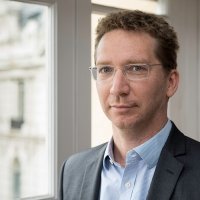The Future of Argentina: Political and Economic Factors Shaping the Macri Administration
Two years into his presidency, Mauricio Macri's approval rating remains around 50 percent, a surprisingly high level of support given the politically difficult reforms he has implemented, such as sharp increases to the cost of gas, electricity and transportation. Following stagflation during his first year in office, Macri oversaw a return to modest economic growth and a steady reduction in inflation. In October's midterm elections, the president's center-right Cambiemos coalition won 42 percent of the vote nationally, and finished first in the country's top five population centers, Buenos Aires City, Córdoba, Santa Fe, Mendoza, and Buenos Aires Province, where the Cambiemos candidate defeated former President Cristina Fernández de Kirchner.
Yet Macri's prospects for re-election in 2019 are uncertain, dependent upon continued divisions among opposition Peronists. Will Macri win a second term? Should the Peronists regroup, would it emerge as a more moderate movement, or return to the populism of the Fernández de Kirchner years? Please join us on Wednesday, April 18 at 2:30 p.m. to discuss these and other questions regarding Macri's political future and next year's general elections with Argentina's leading pollster and political analyst, Alejandro Catterberg, president and co-founder of Poliarquía Consultores.
Speaker

Moderator

Hosted By

Argentina Project
The Argentina Project is the premier institution for policy-relevant research on politics and economics in Argentina. Read more


Latin America Program
The Wilson Center’s prestigious Latin America Program provides non-partisan expertise to a broad community of decision makers in the United States and Latin America on critical policy issues facing the Hemisphere. The Program provides insightful and actionable research for policymakers, private sector leaders, journalists, and public intellectuals in the United States and Latin America. To bridge the gap between scholarship and policy action, it fosters new inquiry, sponsors high-level public and private meetings among multiple stakeholders, and explores policy options to improve outcomes for citizens throughout the Americas. Drawing on the Wilson Center’s strength as the nation’s key non-partisan policy forum, the Program serves as a trusted source of analysis and a vital point of contact between the worlds of scholarship and action. Read more
